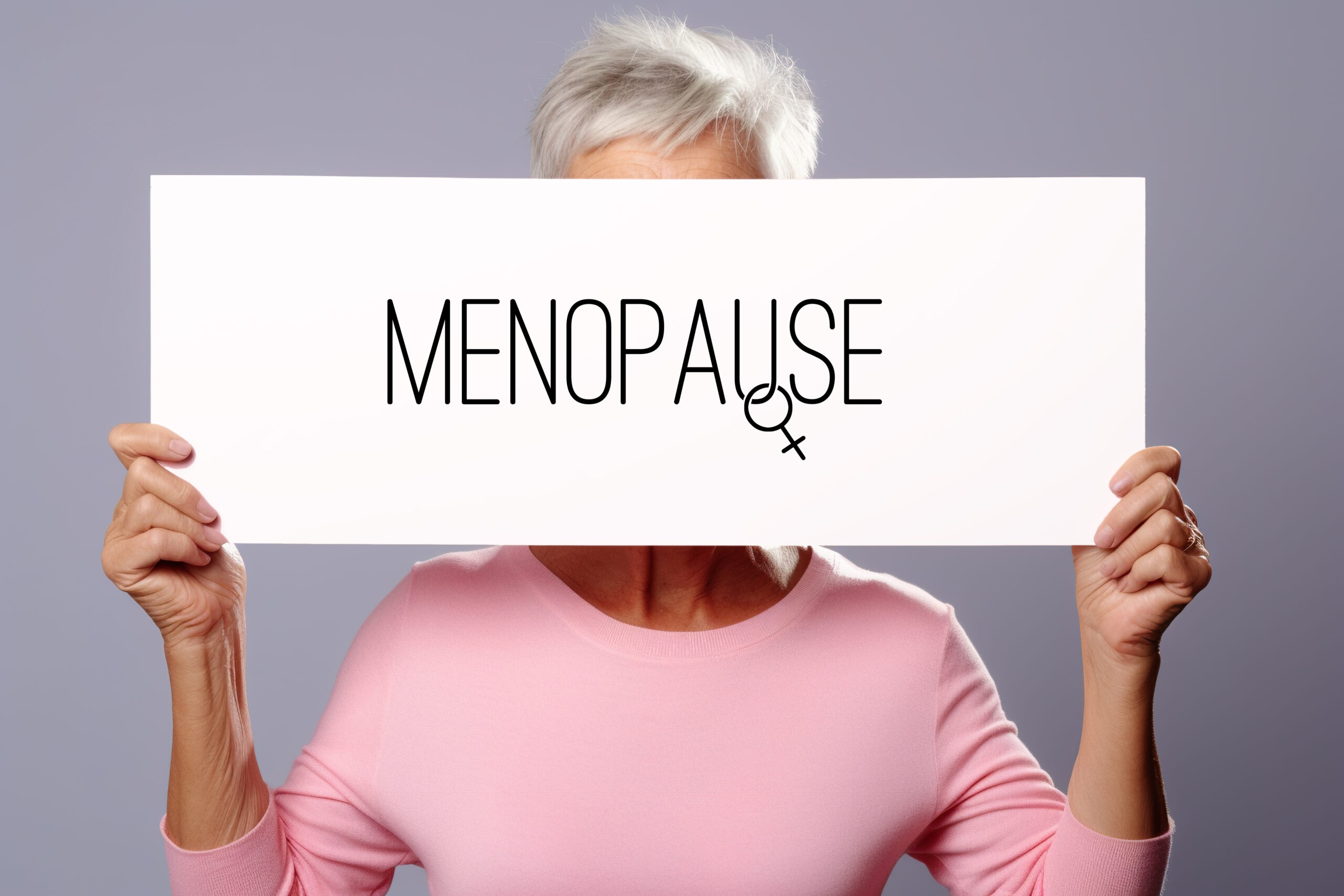Menopause is a natural phase in every woman’s life, but its effects go far beyond the physical. The hormonal fluctuations that come with menopause can significantly impact mental health, often bringing about mood swings, anxiety, and even depression. Understanding how menopause and mental health is crucial, not just for managing symptoms but for empowering women to take charge of their well-being during this transformative time.
In this blog, we’ll explore the intricate relationship between menopause and mental health, focusing on how hormonal imbalances can trigger mood disorders like menopause depression, perimenopause anxiety, and post-menopausal cognitive changes. We’ll also discuss strategies for managing stress and maintaining menopause and mental health.
How Hormonal Imbalance Affects Mental Health
During menopause, the body experiences dramatic hormonal changes, particularly in estrogen and progesterone levels. These hormones play a key role in regulating mood, so it’s no surprise that their decline can lead to emotional instability.
Menopause Depression: A Common Struggle
Menopause depression is one of the most frequently reported mental health concerns during this phase. It often presents itself as feelings of sadness, irritability, and even hopelessness. What makes menopausal depression different from typical depression is its hormonal trigger. The reduction in estrogen levels impacts the production of serotonin, the brain chemical responsible for maintaining a positive mood. Women who have never experienced depression before may find themselves struggling during menopause.
Perimenopause Anxiety: Navigating Emotional Uncertainty
Perimenopause, the period leading up to menopause, is marked by fluctuating hormone levels that can wreak havoc on emotional stability. Anxiety is a common symptom during this phase, often manifesting as restlessness, worry, or panic attacks. Women may experience intense mood swings, and the unpredictability of perimenopause can make this anxiety feel particularly overwhelming.
Hormonal changes, particularly a drop in progesterone, can also make it harder for the body to relax, leading to increased feelings of tension and nervousness. For some women, perimenopause anxiety can significantly affect their quality of life, disrupting sleep and overall mental well-being.
Hormonal Imbalance and Mood Disorders: The Science Behind It
The connection between hormonal imbalance and mood disorders during menopause is well-documented. As estrogen levels drop, the brain’s ability to regulate mood becomes less efficient, often leading to mood disorders like anxiety, depression, and irritability. The shifts in hormone levels affect neurotransmitters like serotonin and dopamine, which are critical for managing emotional responses.
Post-Menopause Cognitive Changes: Memory and Mental Sharpness
Post-menopause, many women report changes in their cognitive function. These changes can include memory lapses, difficulty concentrating, and a general sense of “brain fog.” While these cognitive changes are often temporary, they can feel alarming. The decline in estrogen is believed to play a role in these shifts, as estrogen is known to have neuroprotective effects. Some studies suggest that estrogen may help maintain cognitive function, which is why women might notice mental sharpness waning as their hormone levels decrease.

The Stress Factor: How Menopause Affects Stress Levels
Menopause can increase stress for a variety of reasons, both physiological and psychological. Physically, symptoms like hot flashes, night sweats, and insomnia can take a toll on the body and mind, leaving women feeling exhausted and more vulnerable to stress. Psychologically, the emotional rollercoaster of fluctuating hormones can heighten stress responses, making everyday challenges feel more overwhelming.
Menopause and Stress Management: Finding Balance
Managing stress during menopause is crucial for maintaining mental health. Stress can worsen menopause symptoms, leading to a vicious cycle that impacts both physical and emotional well-being. It’s essential to find stress-relief techniques that work for you. Meditation, mindfulness, and yoga are popular ways to help manage stress. These practices encourage relaxation and provide a break from the constant worries that menopause can trigger.
Lifestyle Changes That Can Support Mental Health During Menopause
Lifestyle changes can make a huge difference in managing menopause-related mental health issues. A healthy diet rich in fruits, vegetables, and lean proteins can help balance hormones and boost mood. Regular exercise is another powerful tool—it releases endorphins, which are natural mood lifters. Getting enough sleep is also critical, as sleep deprivation can worsen both stress and emotional instability.
The Role of Therapy and Counseling in Navigating Menopause
Sometimes, lifestyle changes alone aren’t enough to combat the emotional toll of menopause. Therapy and counseling can offer women a safe space to discuss their feelings and develop coping strategies. Cognitive behavioral therapy (CBT), in particular, has been shown to be highly effective for women experiencing menopause depression and anxiety. Therapy can help you understand the emotional patterns triggered by hormonal changes and teach you techniques to manage your mood.
Medications and Treatment Options for Menopause-Related Mental Health Issues
In some cases, medication may be necessary to manage severe menopause-related mental health issues. Antidepressants and anti-anxiety medications can provide relief, especially for women experiencing severe mood swings or menopause depression. Hormone replacement therapy (HRT) is another option. While HRT is primarily used to alleviate physical symptoms like hot flashes, it can also help stabilize mood by regulating hormone levels.

The Importance of Support Networks
Having a strong support system can make the menopause transition easier. Talking to friends or family members who understand what you’re going through can provide comfort and reduce feelings of isolation. Online communities and support groups are also valuable, allowing women to share their experiences and tips for managing mental health during menopause.
Self-Care Practices for Mental Well-Being During Menopause
Self-care practices like mindfulness, journaling, and regular relaxation exercises can help women stay grounded during menopause. Mindfulness and meditation can reduce anxiety, while journaling provides a healthy outlet for expressing emotions. Taking time for self-care can help you feel more in control of your mental health.
Lifeline Hospital’s Menopause Clinic: A Comprehensive Approach to Menopausal Health
If you’re navigating the challenges of menopause, Lifeline Hospital’s Menopause Clinic offers comprehensive care to support both your physical and mental health. Their specialized team of doctors and counselors understand the unique needs of women during menopause. Whether you’re struggling with depression, anxiety, or cognitive changes, the Menopause Clinic provides personalized treatment plans that include hormone therapy, mental health support, and stress management techniques. Lifeline Hospital is dedicated to helping women thrive during this transformative phase of life.

Conclusion
Menopause is a challenging time for many women, especially when it comes to mental health. From depression and anxiety to cognitive changes, the emotional toll of menopause is undeniable. But with the right support, including lifestyle changes, therapy, and medical treatments, it’s possible to manage these challenges and maintain mental well-being. Lifeline Hospital’s Menopause Clinic is here to guide you through this journey, offering expert care tailored to your unique needs.
FAQS
What are common signs of menopause-related anxiety?
Menopause-related anxiety often manifests as restlessness, persistent worry, panic attacks, and difficulty relaxing. Other symptoms may include increased heart rate, difficulty concentrating, and physical symptoms like headaches or muscle tension.
How can I manage mood swings during menopause?
Managing mood swings involves a combination of lifestyle changes, such as eating a balanced diet, exercising regularly, and practicing stress-relief techniques like yoga or meditation. Therapy, especially cognitive behavioral therapy (CBT), and medical treatments like hormone replacement therapy (HRT) may also help stabilize mood.
Is hormone replacement therapy (HRT) safe for improving mental health during menopause?
HRT can be effective in regulating mood by balancing hormone levels, but its safety depends on individual health factors. It’s important to consult with a healthcare provider to understand the benefits and risks before starting HRT.
Can therapy really help with menopause-related depression and anxiety?
Absolutely. Therapy, particularly cognitive behavioral therapy (CBT), can be very helpful for managing the emotional challenges of menopause. It equips women with coping mechanisms and strategies to handle mood swings, anxiety, and depression effectively.
Can menopause cause long-term mental health issues?
Menopause can trigger mood disorders like depression and anxiety, but with proper treatment, these symptoms are often manageable and temporary.

